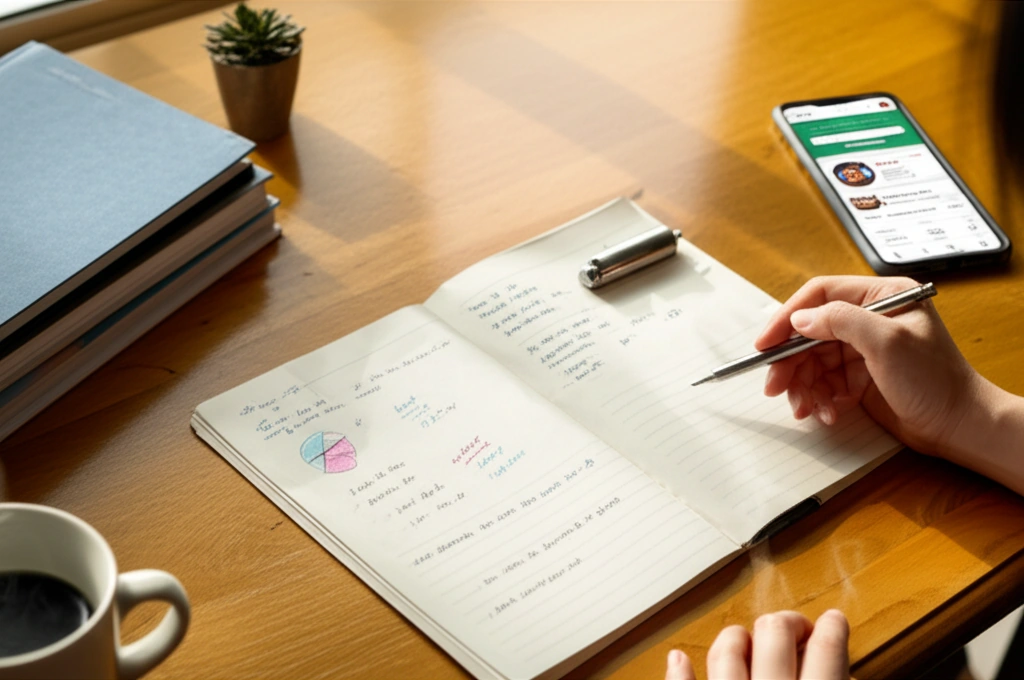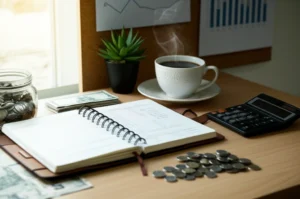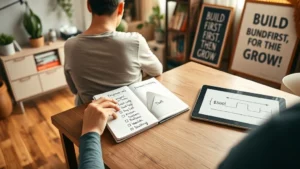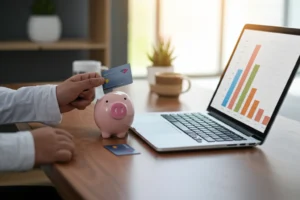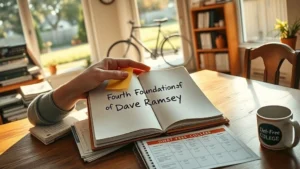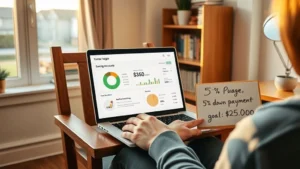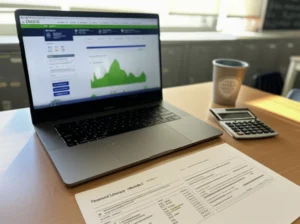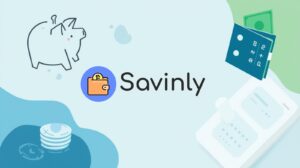Let’s cut straight to it—if you’ve ever stared at your bank statement and thought, “Where does it all go?” or found yourself searching for practical tips to fix those sneaky money leaks, you’re not alone. Managing money well isn’t just for finance nerds or spreadsheet lovers; it matters for all of us, whether you’re just starting out, wrangling a family budget, or dreaming about a future that’s more freedom and less stress.
That’s why I can’t wait to share this with you: the Better Money Habits Education Resource Center. It’s designed to help real people—like you and me—finally take charge of their financial life, cut through the confusion, and stop feeling overwhelmed by “shoulds,” “coulds,” or the latest TikTok finance hacks.
What Is It?
Here’s the quick answer: the better money habits education resource center is an easy-access hub packed with articles, videos, lessons, and interactive tools, all focused on making your financial life make sense. Think of it as a treasure chest for every stage of life—budgeting, saving, understanding loans, building credit, and even investments if you’re ready for that next step[1][3].
This isn’t just theory or generic tips. It’s powered by people who want you to actually thrive, not just survive. In fact, it’s championed by organizations that are trusted in financial education (including Bank of America, nonprofit partners, and educators)[2][4]. You’ll find real-world, actionable guidance that fits your life right now, whether you’re 17 or 71.
Core Features
Wondering what’s inside? Let’s peek behind the curtain. You get:
- Easy-to-follow budgeting tools and templates (because guess what, you don’t have to love math)
- Step-by-step lesson plans for high schoolers and young adults trying to make sense of money before it’s a big mess
- Short, friendly videos on topics—from “what is a credit score?” to “how to finally save for that vacation”
- Interactive quizzes and checklists, so you know which part of your money life needs love, fast
This is a place where you can actually see your money habits shifting, not just read about them.
Budgeting And Saving
Let’s face it: most people aren’t taught this stuff in school. Ever try to follow a budget and end up feeling guilty by week two? Or maybe “budget” just sounds like another word for “fun police.” But inside the better money habits education resource center, you’ll find smarter, fail-proof ways to build a budget that works with your life, not against it[1].
- Actionable modules on better money habits budgeting: from setting up realistic categories to tackling emergencies without panic
- Simple guides to automatic saving (you really can “set it and forget it”—no, really)
- Downloadable worksheets so you don’t have to start from scratch
And maybe the best part? You’ll learn to balance saving for today and prepping for tomorrow. No guilt, just progress. If you’re ready to try a different approach, give their budgeting videos and tools a test-drive—you’ll find a pace that feels just right for you.
Credit, Debt And Loans
Tired of mixed messages about credit cards, loans, and debt? This resource center breaks it down, so you actually “get it,” not just nod along pretending you do. Here’s where you’ll find:
- Clear lessons on what a credit score really means (spoiler: it’s not a grade on your self-worth)
- How to build or repair credit, move out of debt, and avoid common traps
- Smart tips about loans—like when a better money loan is the right move, and when to run the other way
Ever feel lost reading “APR” or “minimum payment?” Let this be your money-life GPS. And if you want the inside scoop on comparing loans or fixing your credit, it’s all here—without the mumbo jumbo.
Lessons For Every Life Stage
Here’s where it gets really cool—this isn’t just for adults. From teens learning “money 101” to parents prepping high schoolers for the real world, the better money habits education resource center makes it easy for anyone to find advice that fits their unique situation.
- Students & Teens: Classroom-ready lesson plans, including a full better money habits high school lesson that teachers and parents can actually use—no boring lectures, just real-life scenarios and interactive activities[4].
- Young Adults: Videos and guides for first jobs, first apartments, and first big purchases (like, say, a car you can actually afford to keep on the road).
- Families & Homeowners: Ways to save up for big goals (home, travel, security) while still enjoying small pleasures. How to handle bills, repairs, and surprises—because “adulting” never stops throwing curveballs.
And if you ever thought financial resources had to be stuffy? Nope. The center offers content in different formats—articles, short explainer videos (perfect for busy brains), and hands-on activities—so you can learn the way that works for you[1][2].
Learn In Your Own Style
You might ask, “I prefer watching a video over reading a manual—does this place have something for me?” Absolutely. There’s a whole corner dedicated to better money habits video content, covering everything from basic banking to advanced savings hacks.
Visual learner? Try out the video series. Prefer to tick boxes off a checklist? Grab one of the interactive tools. Want something you can hand straight to your teen? Download that classroom lesson plan and have them walk you through it—seriously, you might learn something new too.
Even if you’ve dabbled in other free resources like “better money habits khan academy”-style courses, you’ll appreciate how this center rounds out “real life” lessons with heart, humor, and practical takeaways.
How To Use The Resource Center
This isn’t one of those dusty digital libraries—here’s how you (or your kids, your class, even your mom) can jump in right now:
- For individuals: Pick one small lesson, like building a 30-day money habit plan. There are step-by-step templates for tracking, so you’ll see real progress (not just read about it).
- For teachers or parents: Use their better money habits high school lesson as a springboard for family chats or classroom debates—because learning isn’t just about numbers, it’s about values and life choices too.
- For community groups: Run a workshop using their slide decks and activities. Not sure how? They’ve got you covered, with sample lesson plans and facilitator tips at your fingertips.
Start with what feels doable—there’s no “perfect” way to learn. Just showing up for yourself (or your students, or your family) is enough. Progress, not perfection, right?
Comparing Resources
Okay, so why trust the better money habits education resource center? It offers a rare balance: the backing of big names (like Bank of America, nonprofits, and real educators) but it’s not just marketing fluff or a hidden ad[2][4]. You’ll find bilingual resources, up-to-date modules, and easy access for all learning styles—even folks with disabilities, thanks to strategic partnerships and universal design[2]. That’s huge for making sure no one gets left behind.
| Feature | Better Money Habits | Alternatives |
|---|---|---|
| Lesson Format | Articles, videos, classroom plans, interactive tools | Some focus only on articles or videos |
| Personalization | Quizzes match you to resources by life stage/goal | Usually generic content, less tailored |
| Access | Free, online, bilingual options, workshops | Some paywalled or limited access |
| Credibility | Bank, nonprofit, expert-backed | Mixed, sometimes less transparent |
If you’re curious how it stacks up next to platforms like Khan Academy, check out their financial lessons for a neutral comparison. Want an even broader view? According to independent resources such as Investopedia, mixing education from several sources—nonprofit, school-based, and financial institution-led—builds the strongest foundation for better habits (according to Investopedia).
Real-World Success Stories
No one loves dry stats, but here’s something you’ll want to hear. Since its launch, the better money habits education resource center has made a big difference: users tend to open more savings accounts, stick with good habits longer, and grow bigger balances compared to people who don’t use these resources[1][3].
I remember hearing from a friend—let’s call her Jess—who was always stressed about bills, always scrambling at the end of the month. She started watching the budgeting videos, filling out just one worksheet each week. A year later, she told me, “I actually have money left over now. I’m not scared to open my bank app.” That kind of shift is what makes resource centers like this worth it.
And in schools? Educators say they see a real lightbulb moment when students run through the better money habits high school lesson—teachers finally feel like they have something relatable, and teens engage with real scenarios, not just textbook examples[2].
Troubleshooting And Staying On Track
We all fall off the wagon sometimes. The goal isn’t perfection, but progress. If you slip up, just start again the next week. Want a trick to make habits stick? Try “habit stacking”—maybe you review your weekly budget while your coffee brews, or transfer a bit to savings every time your paycheck lands. Small, repeatable actions become big wins over time.
Keep tabs on your savings rate, celebrate each debt paid off, and don’t be shy about asking for advice. If you run into super-specific challenges (like, “How do I choose between accounts?”), these resources link out to community workshops and live coaching, so you’re never going it alone[1][4].
Your Next Steps
Alright—ready to try? Here’s how you can start, even with zero time:
- Pick one area to tackle first, like creating a basic budget, or watching a five-minute better money habits video.
- Download a tracker template and check off your habits each week (even if it’s just “Didn’t impulse-buy coffee twice—yay me!”).
- Set a calendar reminder: revisit the site each month for a new lesson, or share the better money habits high school lesson with your favorite educator/parent friend.
- Curious about loans or debt? Next time you’re weighing your options, check out their guides—and don’t forget the better money loan resources if you want straight talk on what matters.
This is your permission slip: you don’t need to know everything, have a degree in finance, or be “good with money” from the start. You just need the right tools, some honest advice, and a willingness to try something new.
In Closing
We all make subtle money mistakes—most of us aren’t even aware until someone points them out. The better money habits education resource center exists to shine a gentle light on those gaps, providing the practical help, honest encouragement, and fresh perspective that actually leads to change. With lessons designed for every age and life stage, content you can trust, and proven results for real people, this toolkit is much more than hype.
So, here’s my little challenge for you: try one thing this week. Download a budget sheet, watch a quick video, or check out a better money habits high school lesson with your teen. Notice what feels good, and let the rest go until next month. Step by step, those better money habits will start to stick—and your future self will thank you for taking the first move today. If you find something that surprises you or a tip that actually works, I’d love to hear how it goes!

